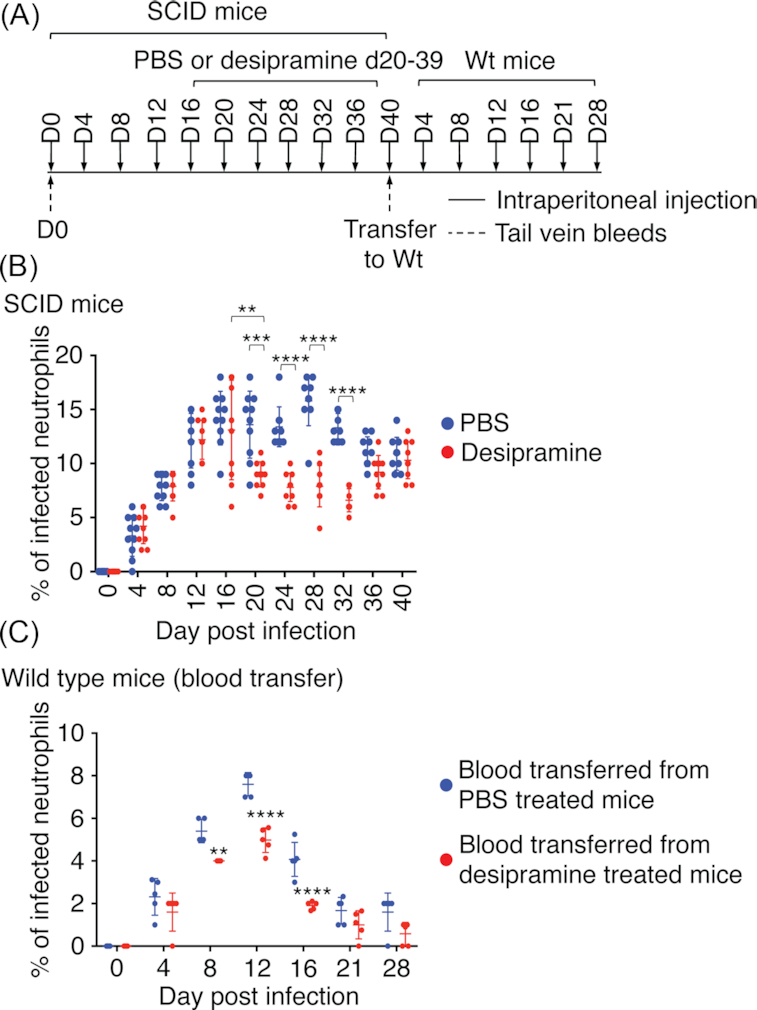Figure 1.

Desipramine temporally reduces the A. phagocytophilum load in SCID mice in a bacteriostatic manner. (A, B) Twenty C57BL/6 SCID mice were intraperitoneally injected with 1 × 108 A. phagocytophilum bacteria. Desipramine or PBS was administered on days 16 through 39 to 10 mice per group. All mice were tail bled on days 0 (pre-challenge), 4, 8, 12, 16, 20, 24, 28, 32 and 36, sacrificed on day 40 and blood collected via cardiac puncture. Peripheral blood smears were microscopically examined for neutrophils containing ApVs. (A, C) Heparin-treated blood from the four C57BL/6 SCID mice in (B) that had been injected with PBS and exhibited the highest bacterial loads or from the four infected C57BL/6 SCID mice in (B) that had been treated with desipramine and had the lowest bacterial loads was, respectively, pooled. One hundred microliters of either pooled sample was intraperitoneally injected into each of five C57BL/6 mice (wild-type, Wt) and infection was monitored by examination of smears from peripheral blood obtained on days 0, 4, 8, 12, 16, 21 and 28 post-injection. Each symbol corresponds to the percentage of A. phagocytophilum-infected neutrophils as determined by examining at least 100 neutrophils per mouse. Data are the mean ± standard deviation (SD) of the percentages determined for 10 C57BL/6 SCID mice per group (B) and 5 C57BL/6 mice per group (C). Error bars indicate SD among the samples per time point. Statistically significant values are indicated. **P < 0.01; ***P < 0.001; ****P < 0.0001.
